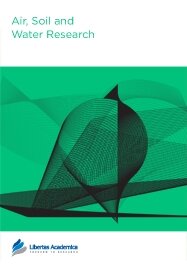

Publication Date: 10 Jun 2008
Journal: Air, Soil and Water Research
Citation: Air, Soil and Water Research 2008:1 3-12

Department of Biology and Microbiology, University of Wisconsin-Oshkosh, 800 Algoma Boulevard, Oshkosh, WI 54901, U.S.A.
Abstract
Recreational water sites such as beaches along lakes, rivers, or oceans, are one of the most popular activities in many parts of the world. Recently rainfall and runoff due to rainfall events has been associated with increasing microbial levels in recreational water. This runoff can lead to beach closures and potentially unsanitary conditions at popular swimming beaches. The impact of stormwater on beach water quality has led to a myriad of option for controlling stormwater. Some of these include grass buffer partitions, stormwater detention basins, media filters, catch basin inserts, and infiltration units. Biofilters, or infiltration units are gaining popularity as a treatment option for stormwater around the Great Lakes basin, but we are aware of no studies that have looked at the indicator organism (i.e. Escherichia coli, or E.coli) removal potential of these infiltration units and the media used in them. The overall objective of this study was to evaluate the performance of a stormwater biofilter medium in removing the indicator organism E.coli in a laboratory system. When several laboratory biofilter system were challenged with E.coli concentrations of 2.82E3 and 2.85E5 E.coli/100mL of simulated stormwater in a 1.25 cm rain event, the systems were able to remove between 83 and 100% of the E.coli in this influent. During a subsequent 1.25 cm rain event with E.coli-free water, the biofilter was able to retain 68%–100% of the E.coli originally inoculated into the system. The results of this study indicate that these systems hold promise for mitigation of E.coli from storm water near recreational beaches. These findings will assist beach managers, engineers, and municipal stake holders evaluate the usefulness of biofilter infiltration as a storm water management tool in order to decrease E.coli input into beach areas.
PDF (486.52 KB PDF FORMAT)
RIS citation (ENDNOTE, REFERENCE MANAGER, PROCITE, REFWORKS)
BibTex citation (BIBDESK, LATEX)

The submission and publishing process was a good experience. During the last few weeks from the submission to publication I have worked with high quality staff. In my opinion, the easy communication was the most important characteristic of Libertas and an important influence on the final quality of the article. I definitely recommend the publisher to my co-workers.

All authors are surveyed after their articles are published. Authors are asked to rate their experience in a variety of areas, and their responses help us to monitor our performance. Presented here are their responses in some key areas. No 'poor' or 'very poor' responses were received; these are represented in the 'other' category.See Our Results
Copyright © 2013 Libertas Academica Ltd (except open access articles and accompanying metadata and supplementary files.)
Facebook Google+ Twitter
Pinterest Tumblr YouTube